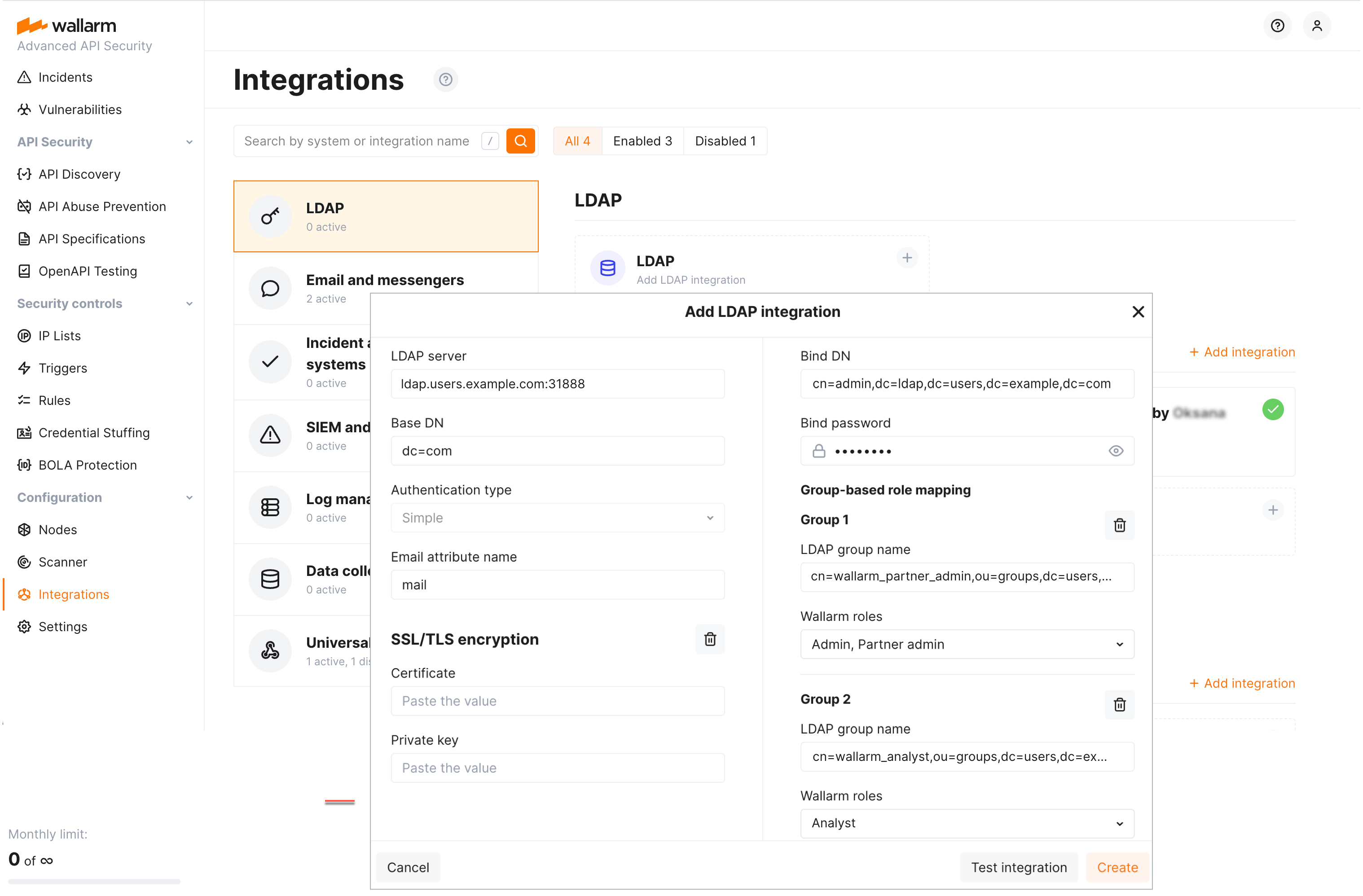Using LDAP¶
You can use LDAP technology to authenticate your company's users to the Wallarm Console if your company already uses a LDAP solution. This article describes how to configure an LDAP integration with your directory service.
Overview¶
To provide seamless integration with your company's existing user management systems (directory services) such as Microsoft Active Directory (AD), Wallarm supports an integration with such systems via the LDAP protocol. Such integration allows you:
-
Provide your company's users an ability to login into Wallarm Console using credentials stored in your directory service without the need for prior registration in the Wallarm Console.
-
Forward user roles and permissions from your directory service to the Wallarm Console.
-
Use data encryption that is supported by your directory service.
Requirements¶
-
LDAP configuration is not available until activated, for activation, contact the Wallarm support team.
-
You can only use authentication via either LDAP or SSO but not both of them. To configure LDAP, first remove SSO, if you have it.
-
Your firewall should be configured to allow incoming requests from Wallarm IPs:
-
In your LDAP, the users must have the following attributes:
displayNamemailoremail(can be customized)
-
The groups must:
- Be
groupOfNamesorgroupOfUniqueNames - Have the
memberattribute
- Be
Setup¶
If requirements are met, you can configure LDAP integration in Wallarm Console at Integrations → LDAP → LDAP.
In LDAP integration, you need to map LDAP groups to user roles in Wallarm. You need to map at least one LDAP group and may add as many additional as necessary.
LDAP group DN
For LDAP group name, use group DN, for example:
cn=wallarm_partner_admin,ou=groups,dc=users,dc=example,dc=com
As basic options, set:
-
LDAP server URL and port in LDAP Server.
-
Base distribution name Base DN.
-
Bind DN and password: full name of an object in the LDAP hierarchy that is used to bind (connect) to LDAP server. Should be accompanied by the password.
-
Email attribute name specifies the name of the field at the LDAP server, where user email should be stored.
-
Authentication type is set to
Simpleand cannot be changed. -
If SSL/TLS encryption should be used, configure it by pasting the corresponding certificate and private key values.
